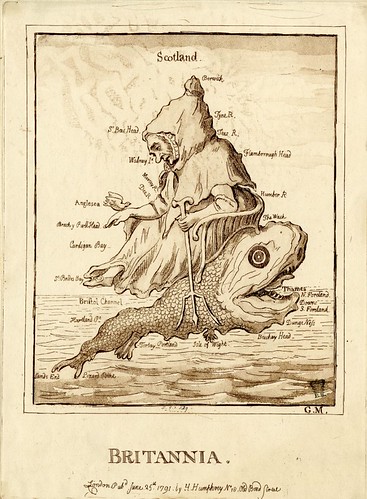 Those of the Jewish faith were not exactly welcomed to England with open arms. It's a wonder that they were ever inclined to settle there! But throughout the centuries there were Jews in England, and England (being the upstanding Christian country that it was) fighting to get them out. It wasn't until the 18th century that Britain finally warmed up to those of the Jewish faith.
Those of the Jewish faith were not exactly welcomed to England with open arms. It's a wonder that they were ever inclined to settle there! But throughout the centuries there were Jews in England, and England (being the upstanding Christian country that it was) fighting to get them out. It wasn't until the 18th century that Britain finally warmed up to those of the Jewish faith.In the Dark ages many Jews were forced to be nomadic due to anti-antisemitism, until King Edward I flat out expelled them from the country. Most left but some remained in hiding. It wasn't until a rabbi approached Oliver Cromwell in 1655 that Jews were finally allowed in England. The Puritan William Prynne and Quaker, Margaret Fell, both from religions who faced prejudice and persecution, were two of the biggest objectors. Hypocrites! Despite the cold welcome, thousands of Jewish people reestablished themselves in England.
The arrival of the 18th century was also the introduction to religious tolerance. For if you were to be Enlightened you must be tolerant of different cultures. It was now fashionable to be open to those of non-Anglican faiths. By the 18th century the Jews were able to establish themselves. During the Jacobite uprising many Jews showed loyalty to the government, and finally the English began looking on them as more than just those responsible for a diety's death. However, when Henry Relham pushed the Jewish Naturalization Act of 1753 which would make Jewish immigrants citizens, there was an outcry, especially among the Tories. The Whigs, in their true character, were all for the act and were happy when it passed.
Jews were an established part of society, especially in London. Sadly though, they were still treated as second class citizens. That treatment, though, could change in the wink of an eye when money was involved. Many of the English Jews showed a knack for money management and became successful money-lenders. So you could be a stuffy aristocrat who looked down on the Jewish but in the future owed s Jewish lender a lot of money. Hmm, maybe it was time to play nice? Mary Robinson was indebted to a Jewish money-lender who she may or may not have given sexual favours to. He later blackmailed her in the height of her celebrity with a tell-all book and fondly nicknamed himself, "The Jew," making light of the negative association of the title.
With the money-lending and other businesses, many Jews established themselves and aided their community. By the Victorian age, the antisemitism was almost forgotten and the Jews had been knighted, titles, and had high positions in the government.

Even the Jews reached success in the Victorian era the negative portrait painted of them is still prevalent in many Victorian and post-Vic novels. Interesting post.
ReplyDeleteVery true, I think I used a poor choice of words. But I will say the situation was slightly better!
ReplyDeleteCatholics weren't treated much better in England at the time.
ReplyDelete